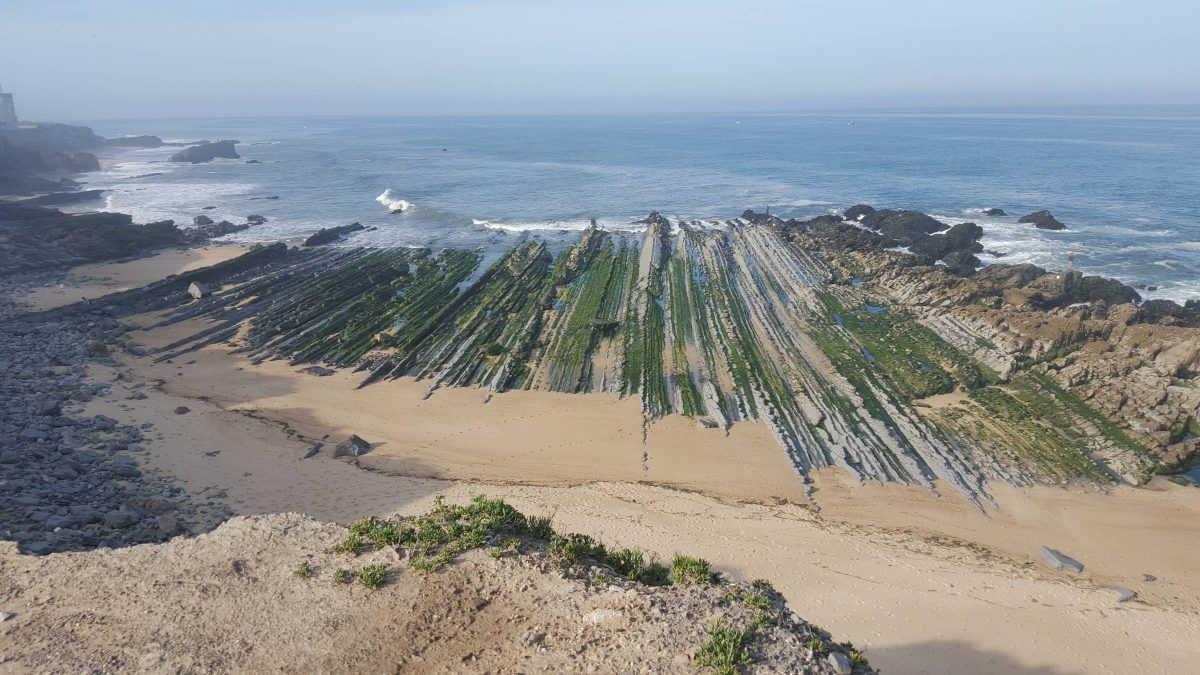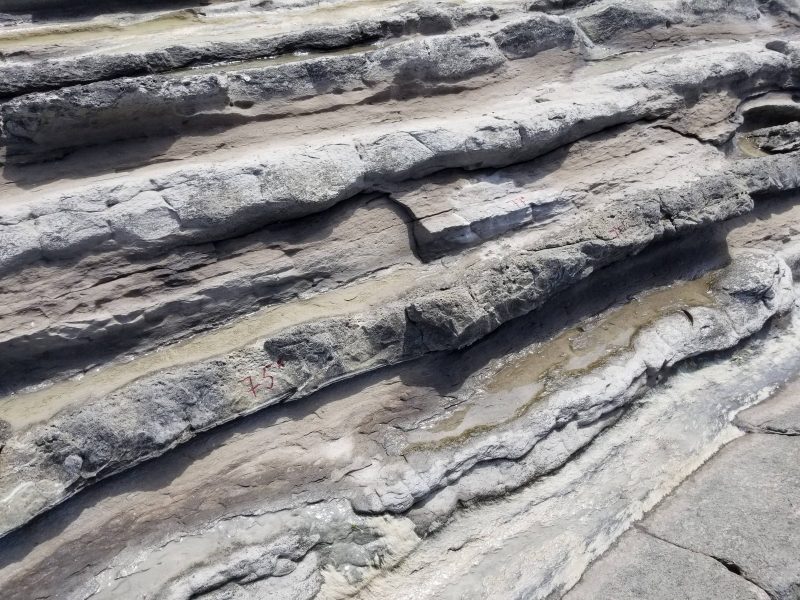
Jutting into the ocean off the coast of Portugal, these Middle Jurassic sedimentary rocks may hold valuable information for us today.//Image: Ricardo Silva
Unveiling the Secrets of the Jurassic: an international collaboration exploring ancient oceans
New project aims to give insights into our historic climate and entice Canada to re-join organization
Earth’s crust records life’s many changes and on the coast of Portugal, about two hours north of its capital, some rocks may hold a very important chapter of our story. It is why Ricardo Silva, an assistant professor of sedimentology, is drumming up support and a team to investigate this area he suspects holds highly relevant information for us to know today.
Geology tells us that the land we inhabit was formed by the wreck of older lands—that marvelous catastrophes unfold and change our planet, for good or ill. Fundamentally, knowing these parts of our story can be helpful in understanding, say, climate change. And practically, we discover minerals needed for things like batteries.

Like reading pages from a book. These layers of Middle Jurassic sedimentary rocks at Figueira da Foz in Portugal can help us understand our natural history. // Image: Ricardo Silva
So with this in mind, Silva is leading an international project that has two purposes. First, assemble a team of researchers to investigate a time in our Earth’s history we know little about—the Middle Jurassic (~174–161 million years ago). This was when modern continents, ocean currents and biological evolution started to resemble present- day conditions, and these changes happened against a backdrop of a changing oceanic carbon cycle (that is, how carbon moves between the atmosphere, ocean, and sediments). Silva’s past work in Clayton H. Riddell Faculty of Environment, Earth, and Resources has shown that severe disruptions in Earth’s system are associated with changes in oceanic organic carbon cycling. But we know very little of what happened in this context during the Middle Jurassic, which would be handy to know today given our carbon issues.
“Gaining a fundamental understanding of Earth hopefully makes us better stewards of the planet,” Silva says. “It’s just a question of shining some light into a very dimly lit part of our knowledge. We do all these computer models right now, but we lack the understanding we need to make sure they are accurate. We need a better insight into oceanic processes related to organic carbon.”
The second purpose of Silva’s project is trying to keep Canada relevant on the big stage. This project, titled Middle Jurassic Earth System and Timescale (M-JET), is part of the International Continental Scientific Drilling Program (ICDP). ICDP’s main objective is to coordinate international continental drilling projects in various regions worldwide with diverse scientific targets and drilling depths.
In 1998, Canada was a full member of ICDP but pulled out in 2015 because of funding issues. By hosting this project, Silva is trying to keep Canada engaged in this international community in the hopes that the nation could one day join as a full member again. “It’s unthinkable that Canada is not part of a global organization that could bring so much to our country,” Silva says. “The aspect that I struggle with is people not realizing the importance of it: it’s through ICDP that many scientific breakthroughs are made and because we’re not a member, Canadian scientists are limited in their participation. So we are missing out on a program that generates a lot of new knowledge and we are missing out on the possibility of training students in the technologies of tomorrow. Canada is a leader, but we can’t really lead if we’re not in this global organization.”
For now, Silva invites researchers from the international scientific community, spanning a broad range of disciplines, to join the M-JET project that will begin with a planning workshop in Figueira da Foz, Portugal, in June 2025. He also asks anyone interested to visit www.icdp-canada.ca to learn more about ICDP-Canada and its multi-organizational effort to bring Canada back to continental scientific drilling.






